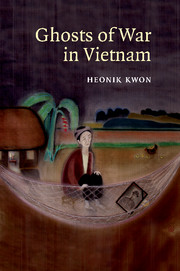6 - Transforming ghosts
Published online by Cambridge University Press: 05 June 2012
Summary
Ghosts in Vietnam do not always remain as such. Our earlier discussion dealt with two main social bases, the state and the family, on which displaced war dead may transcend the condition of “death in the street.” Each institution has strived to account for the missing bodies of the dead from home burial and has an established ritual system to account for their memories. Whereas their mortuary and commemorative systems commonly divide the identity of the dead into two collective units between those who are ideologically related to the institution and those who are not, they nevertheless manifest different ideologies and mechanisms of exclusion, based on genealogical ideology for the family and political ideology for the state. The institution of kinship memory may therefore accommodate identities excluded from the state institution of commemoration. Furthermore, we saw that there is a structural difference between the two ritual systems: the principle of concentric dualism in the ritual of kinship memory, consisting of the centrality of ancestors and the periphery of ghosts, in contrast to the unilateral, centrist principle in political hero worship that negates the existence of peripheral memory altogether.
The previous chapter explored another dimension of relatedness in the structure and practice of kinship memory. There I argued that ritual interaction with ghosts takes on a different meaning if we consider it in relation to other like actions rather than in opposition to interaction with ancestors.
- Type
- Chapter
- Information
- Ghosts of War in Vietnam , pp. 103 - 132Publisher: Cambridge University PressPrint publication year: 2008

